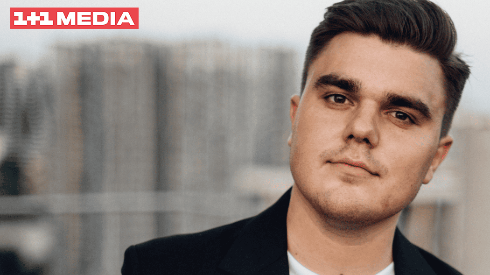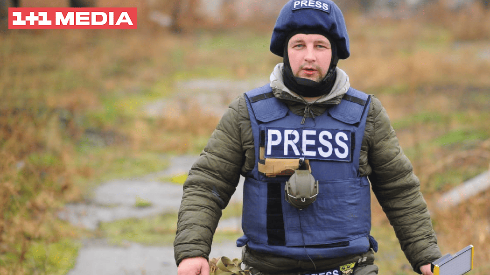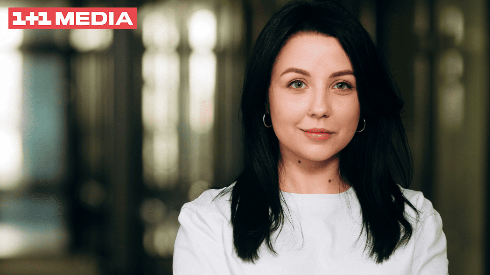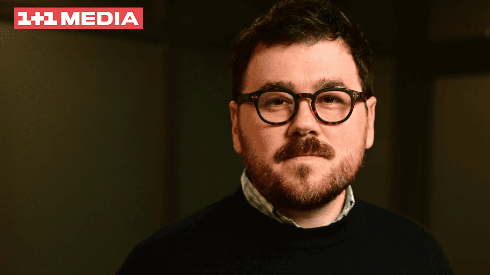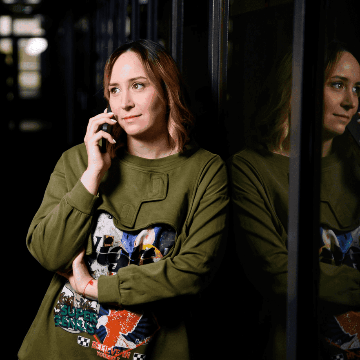
Tatiana Serova, Head of Digital Promotion at 1+1 media
The morning started very early - at about 5 o'clock I heard an explosion, but did not pay attention to it
You were supposed to join the Corporate Communications team on 24 February 2022, but for reasons we all know, unfortunately, this did not happen on that day. Do you remember the morning of 24 February? How did it start and who called you first?
My acquaintance with 1+1 media started back in 2017 in the PR department. So I kept in touch with some of my colleagues after changing jobs. Before the full-scale invasion began, Yana Lyakhovych, now Head of Corporate Communications at 1+1 media, told me that they were looking for a creative manager to join their team. I was interested in the offer and the opportunity to return to the company. After passing the interview, we scheduled a meeting to sign the offer on 24 February.
On the night of the 23rd to the 24th, I slept with the TV on, so I woke up often. The morning started very early - at around 5 o'clock I heard an explosion, but I didn't pay attention to it. My friend called me and told me that the war had started and suggested I go out of town, but I said no: "No, what war?". However, later I agreed. My things were packed in advance, and the car was fuelled. At that moment, my thoughts were mixed, and everything was perceived as a journey. Only a few hours later I started to analyse and realised that it was not an adventure at all.
The team was always in touch, working overtime, but for a common goal

As you know, at the beginning of the Great War, you were involved in the War Stories in Ukraine project. Tell us more about this project. What are its main goals and objectives? How did you collect and present information about the brutal war in Ukraine? How did you distinguish between fake news and the truth?
A few days after the start of the full-scale invasion, Yana Lyakhovych informed me that the team was starting to fight Russian propaganda and launching the War Stories in Ukraine page, so I joined them on 1 March. The team was always in touch, working overtime, but for a common goal. Although I was not yet officially employed, our work was very important for the country. First of all, it was my civic position.
The main goal of the page is to tell the international community what is really happening in Ukraine, to destroy Russian myths and fight their propaganda. We immediately decided that we would reach two audiences - Europeans and Russians. We hoped that we would be able to reach the latter. So, having identified a number of sources that could be trusted, we made 5 publications a day, as we positioned ourselves as a media outlet with reliable information. We wrote about Russian crimes and gathered Russians for anti-war rallies. But after a while, we finally realised that Russians are a silent herd, so we gave up Russian and left English and Ukrainian, focusing on the stories of specific people who suffered from Russian aggression.
I remember the day when a woman and her child were injured in the shelling of Chernihiv. It was she who posted all the consequences on Instagram, and we, in turn, published them on the War Stories in Ukraine page and told the international community about those horrors.
It is clear that the audience's attention is focused on such events, so from time to time the page is blocked for "sensitive content". Could you tell us in more detail which posts were blocked and how you managed to get the page back? How does the international audience react to your posts?
We showed the events taking place in Ukraine as they were. So the first thing we faced was an attack by Russian bots and their complaints about the posts. For each trigger word, such as: "terrorists", "Azov", "Mariupol", we and other public pages were blocked and put into a shadow ban, which artificially lowered our reach and the number of followers.
The last straw was a post with a photo of children having breakfast against the backdrop of explosions. Then the page was completely blocked. For about six months, we tried to restore it, wrote complaints and explanations, but it was to no avail. The team of the Ministry of Digital Transformation helped us a lot, because they actively help the media and influencers who actively tell the truth about the war. Through them, we managed to transfer all the information about the account to the Meta office, so the account was restored in 2 days. Now we filter the content, blur sensitive moments, and try to avoid trigger words in order to continue telling a large audience about the crimes of the Russian Federation.
However, the audience has always been supportive and encouraging. And it energises us to keep fighting.
We tried to work smoothly, but at the same time we couldn't plan the day, because we were completely dependent on the charge on the phone, the availability of communication or the Internet
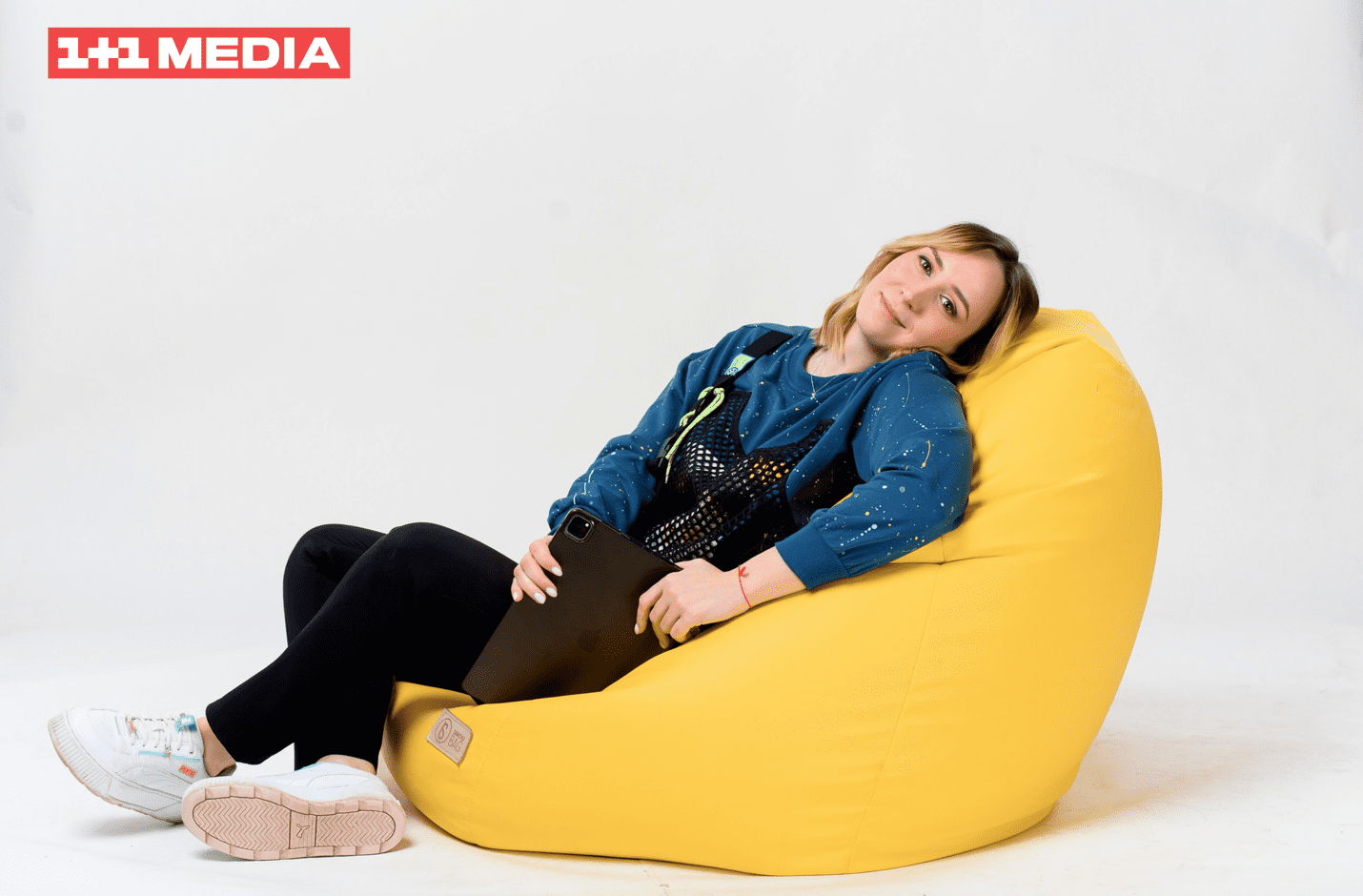
What is the peculiarity of the work of the head of digital promotion in times of war? What difficulties and challenges did you face during the great war?
The biggest challenge is blackouts. At first, I was in Canada, so I could provide backup if necessary, but when I returned home, it was difficult to stay in touch 24/7. We tried to work smoothly, but at the same time, we couldn't plan the day because we were completely dependent on the phone's charge, connection, or the Internet.
Digital marketing is about long-term planning and a strategic approach to communications. Speaking about the 1+1 media page, how does your team respond to situational, often tragic, events that take place in the country?
We definitely talk about tragic events, because it is a loss for every Ukrainian. On such days, we try to honour the victims with silence and do not publish anything related to the activities of 1+1 media. I believe that it is extremely important to express condolences to those people who have suffered or lost loved ones through our silence. This is how social media communication should be in times of war.
For how long is your team currently creating a content plan? What does it consist of and what goals do you set for yourself?
We have a strategy and a number of regular columns, but the situation is unstable at the moment, so we only create content plans for the coming week. But every morning we update the information depending on the events both in the country and in the company. We are used to it.
We have a number of priority projects, including the socially important projects "Children's Dream Grove", "Sport Against War", "Plus Ukrainian", "How are you holding up?", and "Working in War". We support the communication campaigns of these projects as a matter of priority. I am particularly proud of these social initiatives.
In February 2023, we launched a large-scale communication campaign called "Add Ukrainian", which your team is involved in promoting on social media. Could you tell us about the content published as part of the project?
I believe this project is essential for each of us, even those who have been speaking Ukrainian all their lives. The goal of the Plus Ukrainian campaign is not only to ease the transition to Ukrainian, but also to increase the popularity of Ukrainian-language content on social media and support our native culture. In Telegram and TikTok, we talk about Ukrainian literature and authors (both modern and classic), publish grammar rules, self-testing tests, cultural quizzes and much more useful content.
We are also currently developing a new style for 1+1 media's social media. What will the new style look like and what meanings do you have in mind?
Our team monitors the needs of the audience and changes in visual trends, so from time to time we adapt the style to meet modern needs. In such a difficult time, people have their minds full, so we want them to feel relaxed and easy when they visit our page. By minimising the visual load, we want to be closer to the audience and make everything simple.
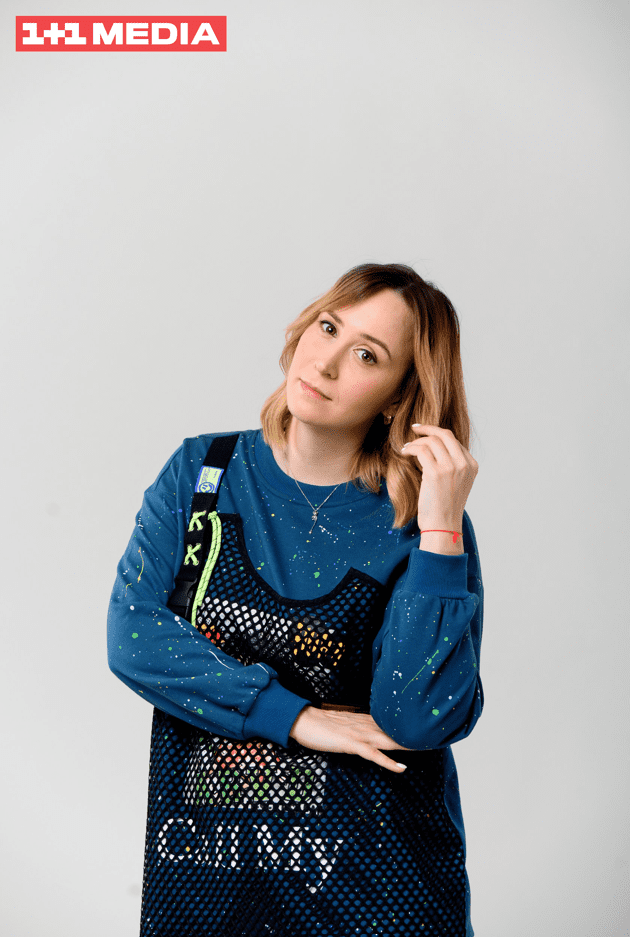
Since you work on several platforms in Digital, where do you get inspiration and strength to keep working?
I have several sources of inspiration - communication with friends, stories of incredible Ukrainians who do amazing things. This inspires me. And drawing and TikTok help me switch off my brain for a while.
I want my problems to be "What film or performance should I go to?" and not "Where to run during the shelling?"
Tell us about your dream after the Victory?
I want us to start living life to the fullest, developing business and technology, implementing our own ideas, engaging in creativity, so that all Ukrainians think beyond their primary needs. We, as a nation, have a powerful potential. We have surprised the world with our courage and resilience, so after our Victory, I want us to surprise it with our creativity and ingenuity!
